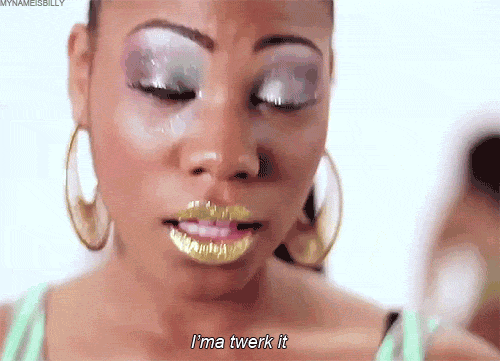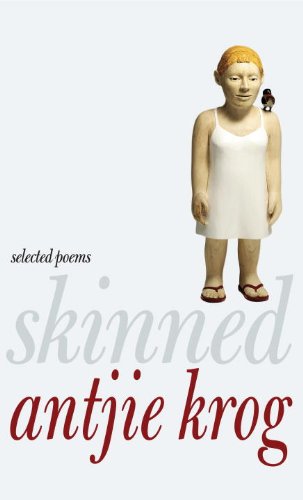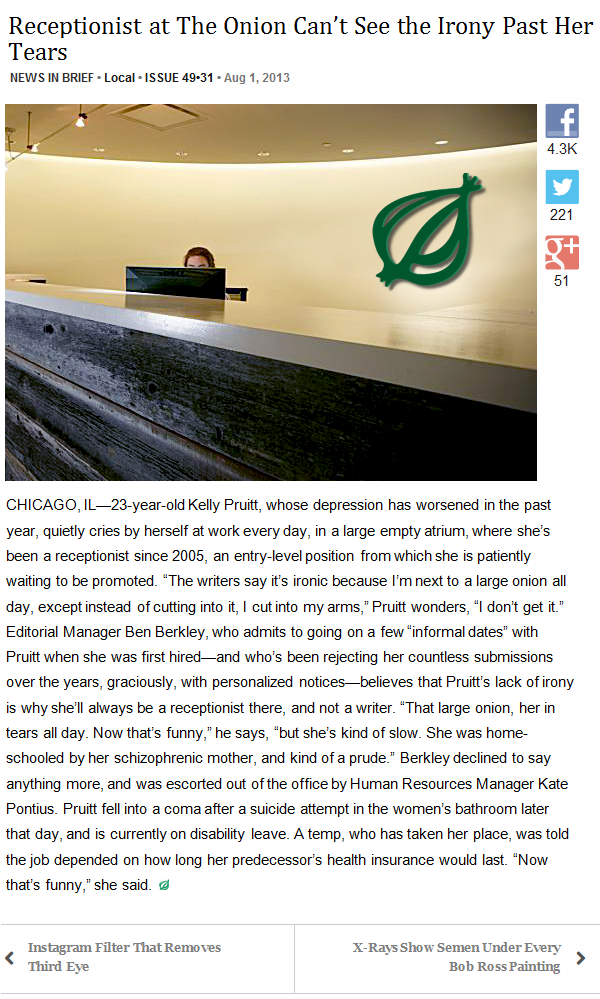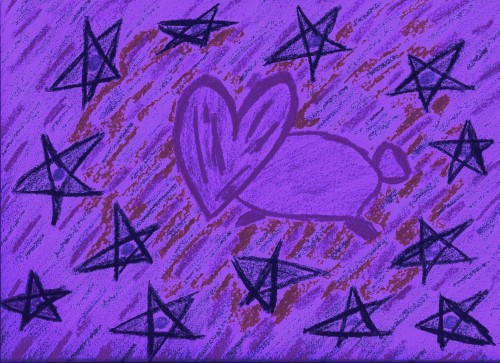Skinned: An Interview With Antjie Krog
*****
One of South Africa’s foremost contemporary poets, Antjie Krog has been described as the “Pablo Neruda of Afrikaans.” I stumbled on Antjie Krog’s work several years ago and was rewarded with the strange, passionate, tough and well-organized verses of Body Bereft (which contains, among other work, her strange and fiery Menopausal Sonnets). So, I was excited when, earlier this year, a Selected poems of Antjie Krog, Skinned, released from Seven Stories Press.
*****
And here, then, is the transcript of an email interview I did with South African poet Antjie Krog that touches on those Menopausal Sonnets, South African Politics, Afrikaans, Indigenous Literature Translations, etc, etc:
*****
Rauan: Many of the readers of this blog will be drawn to “Menopausal Sonnets” and other examples of frank, fiery and often crude writings about the changing (and failing) female body. In your Author’s Note you mention that “Skinned” contains “traces” of certain foreign writers, including Sharon Olds and Carolyn Forché. And it seems to me, besides, that you are naturally a fiery, direct and spicy personality. (How right and/or wrong am I?)
And can you elaborate on what, inside and outside, brought you to write such direct and sometimes graphic poems containing bits like
…you grab this death like a runt and plough its nose
right through your fleeced and drybaked cunt.
and
……the waist thickens and
the vagina wall thins and the colon crashes
through its own arse. how dare her toe
nails grow so riotous then…
Antjie: Poetry has taught me how to live. Everything of value I have found there. For me it therefore ought to be able to encompass one’s whole life. I am very aware what male poets have decided the Main Themes of Literature should be: Love, Death, God, Nature and War. This is fine, but it should also say menstruation, menopause and grandmother, READ MORE >
Let’s Plunder Baudelaire
My French hasn’t happened, barely has my English. What might allow me to translate Baudelaire any better? Have you seen the poorly Christian way being had with some of his lines?
Ses cris me déchiraient la fibre
is
Her screaming would drive me crazy
Her crying knifed the heart in me
Her screechings drilled me like a tooth
Her crying upset me horribly
Her crying tears me apart
Her nagging tore at every part of me
Save for contour, pasteurization, cluck by region, I know my reek, but this line from Le Vin de l’assassin or The Murder’s Wine or The Assassin’s Wine or The Wine of the Assassin or Sippy Vindicator is rarely caught right. Why should it be? Can we span our whip from known to felt? I’m saying it doesn’t wow to take a nineteenth century dandy with a peanut head, and of such a floral, copulating rigor, and pinch him to “drive me crazy.” He’s not young Britney batting curls. Baudelaire consistently scarfed his wig. What is the direct UN transcript of this lovely purple? The hissy fit runs deeper into Satan. He’s not workshopping; he’s pissing blood. I don’t care, because I’m translating the poem right now, out of French and without rhyme. I’m going to say Michael Robbins and few others on his level have by their genius made rhyming their property. I keep very afraid of my betters. Especially Robbins. I chose my last twenty dollars for his book when I was starving in Austin. It gave me a lot of meals to look up to, so if I rhyme it’s just a glitch in the word salad, sir. Please. I berate my own underneaths. I live in fear. Ariana Reines having brilliantly done legitimate work translating Baudelaire – let me distinguish, too: This is simply an act of poetic necrophilia, mid-lobotomy.
Brief Notes on Johannes Göransson’s Poetry Foundation Posts
Rauan Klassnik already wrote a little bit responding to the first of Johannes Göransson’s recent ‘Corean Music’: Art and Violence posts at the Poetry Foundation blog. Part 3: “The Autobiographical Account of The Diabolical Music of Translation and Kitsch,” starts with the lines:
Every immigrant knows that it’s impossible to translate.
Every immigrant knows that it’s impossible not to.
As the post introduces some of JG’s own autobiographical context into the discussion, these opening lines push me to immediately delve into my own autobiography and the troubles of translation, translating between languages, yes, but also between cultures, histories, philosophies, beings. (Also I’m taken back to Bhanu Kapil’s Incubation: A Space for Monsters…)
He also quotes Kim Hyesoon from an interview:
Yes, poems are ways of saying you clearly remember the day of your death and your tomb. When I am writing poetry, I relive my days when a woman inside me dies many times. My body is full of graves. A sepulcher is dug up, and a young girl comes out of it with her dusty hands in tears. A lady who is a young girl and an old girl at the same time feels the presence of the young girl. I feel that the 15-year-old me and the 50-year-old me come out of the sepulcher through an illegal excavation. Time is not a straight line, but just a flat hell, like a desert. I am a tomb robber who is robbing my own tomb. Things from my tomb are exhibited under the radiant sun. Every time it happens I feel crude.
This feels really apt to me. The sort of violence of extracting different versions of a self, extracting memories and translating those memories, a thousand lives and deaths trapped in the strange balance of a body, like a fucked up game of Operation.
Recently I found some of my mother’s old photo albums, an old yearbook, photos of her as far back as junior high, some from before she met my dad. I had never seen most of these photos before. I looked through each album with my dad, recording his thoughts, recollections, questions as we picked her out in group and class photos, speculated on her age and context. My dad had also not seen many of these photos before. It was a strange piecing together of an identity, an identity that is altogether very clear in our minds. She was his wife. She was my mother. And an identity, that instead of becoming magnified, clarified, starts to become shattered and fragmented. It is a violent and uncomfortable process. Who is this woman at the beach in the photos? What version of my mother is this? How do I extract her ghost, my ghost, from these old images?
It is strange to think about the violence of translation. JG writes:
It was an abusive translation project.
It was catastrophic translation.
I haven’t recovered yet.
I haven’t recovered from the violence and I haven’t recovered from the beauty of being drowned in a foreign language, a language full of strange and alluring words like “faggot” and “weirdo.”
I’m not doing a full response of JG’s posts, and regardless, you should head over to the Poetry Foundation and read them yourself, but mostly I’m currently too self-absorbed to make any connections that aren’t related to my own peculiar and particular situation. JG’s posts are full of interesting questions, including circling around an ancient one about the potential of art. I’ll stop here for now, but curious to hear from others who might be engaging with these ideas in different ways…
The Novelist?
Fun new game where you get to control, via a ghost, a depressed novelist trying not to destroy his family. Read the full article (I recommend the video) over at Kotaku.
SICHA, CLINTON, CYRUS: THOUGHTS ON DIVERSE DEMOGRAPHIC REPRESENTATION IN MEDIA
Choire Sicha’s first book is out. I haven’t read it yet, but it is called Very Recent History: An Entirely Factual Account of a Year (c. AD 2009) in a Large City. The book party was at the East Village gay bar “The Cock,” and I have to say I have never seen it as packed as last night, at least as a pedestrian who quickly walked past it from the outside. There will be a lot of talk about the book, because almost everyone who reads (a lot?) online knows of Sicha. The book follows a group of gay men and chronicles their lives, but for some reason I trust it to not be regressive, even before I read it. I choose to believe Salon, that it will be “among a next wave of books about gay folks as full American citizens that doesn’t bother walking them through schematic journeys meant to stand in for the American Gay Experience.”
The active endeavor to ensure the meaningful participation of diverse individuals in media is integral. It helps reach a realistic and more informed view on the specifics of a broader range of identities. However, the constant overanalyzing of public figures’ gender, race and ethnicity identification choices may end up harming the very purpose they were intended to serve: letting individuals receive merit-based recognition for their objectively high-quality work.
A recent example of excessive analyzing of such nature is that of Hillary Clinton setting up a twitter account. Since the first moment she signed up for the social media website many jokes–some witty, others offensive–have been recurring. An approach that stuck out to me as particularly idiotic was the interpretation of how she chose to order the numerous qualities that define her in her two-line bio. To assert that Hillary Clinton is “anti-feminist” because she starts her twitter bio with “wife” and “mom” before addressing her professional accomplishments, is not only naive and judgmental, it is also self-righteous and flat-out manipulative. Policing the way people choose to present themselves, and telling them they are not to be taken seriously as feminists because they prioritize differently then the average feminist is expected to (?) is childish.
Additionally, who does not know that she also has served as Secretary of State? Pure common sense makes the dialogue surrounding the topic redundant. I think this line of thinking contradicts the true sense of feminism, as in such a system of order the women are provided the agency to identify how to present themselves. What about the people who use humor in their bios? Is that unethical? Are we taking things–such as a public figure’s social media presence–that seriously, and if we are, whose fault is it?
MANIPULATIVE NATURE OF THE DISCOURSE
A piece in The Millions presented a family saga focusing on the case-hardened nature of the way identity is performed by the writer and her grandmother, who seem to fall into the trap of being defined by the social expectations their social identities in how they attain and use power.
“As mixed-race girls, we learned to take what we could from where we could to make a whole. That’s a vulnerable position to be in, susceptible to second-guessing and collapse, but it’s also a crash course in manipulation. Hence the posturing of invulnerability. The multitude of ways that my grandmother and I announced a lack of need, and presented ourselves as in solid control. We don’t need you, we projected, and therefore we may have to ignore what you need as we go about proving that to ourselves once and again. One of the only things I know how to say in Chinese is: Wo zi ze lai. I can help myself.”
After its initial appearance, the ideology of representation has slowly lost a large chunk of its significance. There are times that I feel like I am not supposed to not like non-white writing, even if some of it has to be mundane, dull and entitled. The worst is when the writing is also patronizing and borders delusional. In some ways, if the argument is reduced to powerlessness as its selling point, it cannot easily be powerful when the powerlessness is not real.
I am not Miley Cyrus’ biggest fan, but an open letter addressed to her on The Huffington Post offended me. The writer aggressively requests Miley Curys ought to stop disrespecting “what feels black.” What he means of course, is that she should stop trying to emulate the rap element that currently dominates pop culture: she is white, thus cannot and must not do these things associated with what the author considers parts of the black identity, such as twerking. To claim these as an exclusive element of black culture is silly, and certainly flawed at its core: it leads to a new separation and division among people of different races. It seems like the writer might not be comfortable with a broadly inclusive culture that is not segmented the way he views it, or at least that is what the tone of his letter indicates.
His main issue and the central issue with her is her requesting producers that she was trying to go for a vibe that “feels black.” Her creative endeavor to do that cannot be offensive. It can be successful or not. While it is difficult to decide which is the case, at the end of the video for “We Can’t Stop” she smiles wearing a grill. It is not a mocking grin, rather a smile of awareness. She knows what she is doing, and she is doing it with a sense of humor.

August 7th, 2013 / 1:21 pm
Seattle Author Spotlight (6) — Shin Yu Pai
This is the 6th Seattle Author Spotlight (previous ones were Richard Chiem, Maged Zaher, Deborah Woodard and Matthew Simmons) and I plan on running quite a few more because AWP’s coming and Seattle has plenty of talented and interesting writers.
Shin Yu Pai:
Shin Yu Pai is an ambitious, bright and engaging poet, photographer and C.O.O. of the National Asian Pacific Center on Aging: “the nation’s leading advocacy and service organization committed to the dignity, well-being, and quality of life of Asian Americans and Pacific Islanders (AAPIs) as they age.” Shin Yu’s most recent book, Aux Arcs, has just released from La Alameda Press and is rooted, for the most part, in her experience, and situation, of being in a small town near Little Rock, Arkansas.
I thoroughly enjoying chatting with Shin Yu at Elliott Bay books (this is where I’ve met and spoken, thus far, to all featured Seattle Authors). We spoke some about the form and content of Aux Arcs and this branched us off into other chatting about assimilation, the way different people treat each other, etc. There were other things I’d planned on talking about but the time kind of flew by. And that’s always a good sign. Shin Yu has a kind of spark, presence and good sharp energy that just makes you want to be around her.
Brief Bio:
Shin Yu Pai is the author of several poetry collections including Adamantine (White Pine, 2010), Sightings (1913 Press, 2007) and Equivalence (La Alameda, 2003). She has been a writer-in-residence for the Seattle Art Museum and has received grants for her work from 4Culture and the City of Seattle. For more information, visit her website
Brief Interview:
Rauan: you’ve lived as an adult (and a writer) in Seattle, Texas and Arkansas (among other places)– can you tell us a bit about the differences in living in these places and how these cities impacted yr thinking (and therefore yr writing)? READ MORE >
August 2nd, 2013 / 12:30 pm
THE SEMANTICS OF CHRONOTOPES

BILLY: THE SPORT
“Billy” fucked the love of my life. [1] I had known Billy for a longer time than I had known the love of my life, and that still holds true from an objective standpoint where time is universal. I knew him to be the person I was not expecting to be friends with today, not because he fucked her–because I was actually not expecting that at all–but because our friendship was extremely mild. [2] There were also haphazard and unrelated–as they pertain to each of us as friends–shared chronotopical coordinates. We happened to be at some of the same places at a lot of the same times: the concert where I met the girl I dated before I met the love of my life, the liberal arts institution in the Midwest we both attended and, finally, New York.
Understanding how memory is determined by the chronotope has always been an arduous battle between logic and emotion, because time becomes connected to the space the memory is produced in and the intensity of the experience held in each memory shapes one’s perception of time. Time may appear to no longer be measured by any watch or clock, but by the strength of one’s emotions. Space is also prone to personal subjectivity, as past memories tend to engender feelings of the past, arguments fought and wet kisses shared.
To construct an understandable narrative, the creator must give in to the limitation of linearity, regardless of how convoluted the structure of the linearity becomes. [3] As a producer of memories who also chronicles them in prose, I have often manipulated myself for days until I surrender to an objective need to stop giving in to my desire for the (re)production of an intense memory.
Last time I saw Billy we met at the Highline, [4] which is always awful and never ceases to surprise with how awful it will be over and over again. Time definitely stops forever at the Highline and the space becomes a mini-simulacrum of all that is hell: enthusiastic teenagers, people who like to document their everything for antisocial media and runners who run for fun. No wonder Billy had a freakout and cried, even if the space actually had nothing to do with it. [5]
This time I was meeting Billy at a Vietnamese place in Chinatown called PHO-BANG. I go there a lot, because the wait-staff is extremely rude, but also because I like their pho and it is definitely enough for two meals, or even sometimes all the meals of a day if you get the large size with the beef chunks. My favorite detail about the kitschy exotic ambiance is the clock that is next to the counter, a clock that ticks but has stopped forever. On the clock there is a visual of the Twin Towers, a space that real time has made a non-space. I find that definitely inappropriate, but maybe I am silly to think that, especially after really loving the Tom Junod article in Esquire that beautifully conveyed the tragedy of imagery recounting the 9/11 tragedy. [6]
Dear Rauan,…(4)
*****
[ helping people sometimes can be painful, yet liberating, but, as usual, I am here to help, in all my subtlety, & potency ]
*****
and this time we have Ariel from Denver:
dear rauan,
is it a good idea to castrate Patriarchy’s henchmen like Blake Butler, Rauan Klassnik, and Johannes Göransson? Some idiots say they’re exploring the darker side of human nature through an exaggerated male “lens” but I know in my soul that these guys are just straight-up misogynists.
I must confess, though, that one time I dreamed these three “doods” were forcing themselves on me (boot in the face, the Svelte Swede, and all that) and I woke up orgasming as hard as I’ve ever.
but tell me, dear rauan, should we castrate these vermins?
thank you in advance,
Ariel T.
*****
*****













